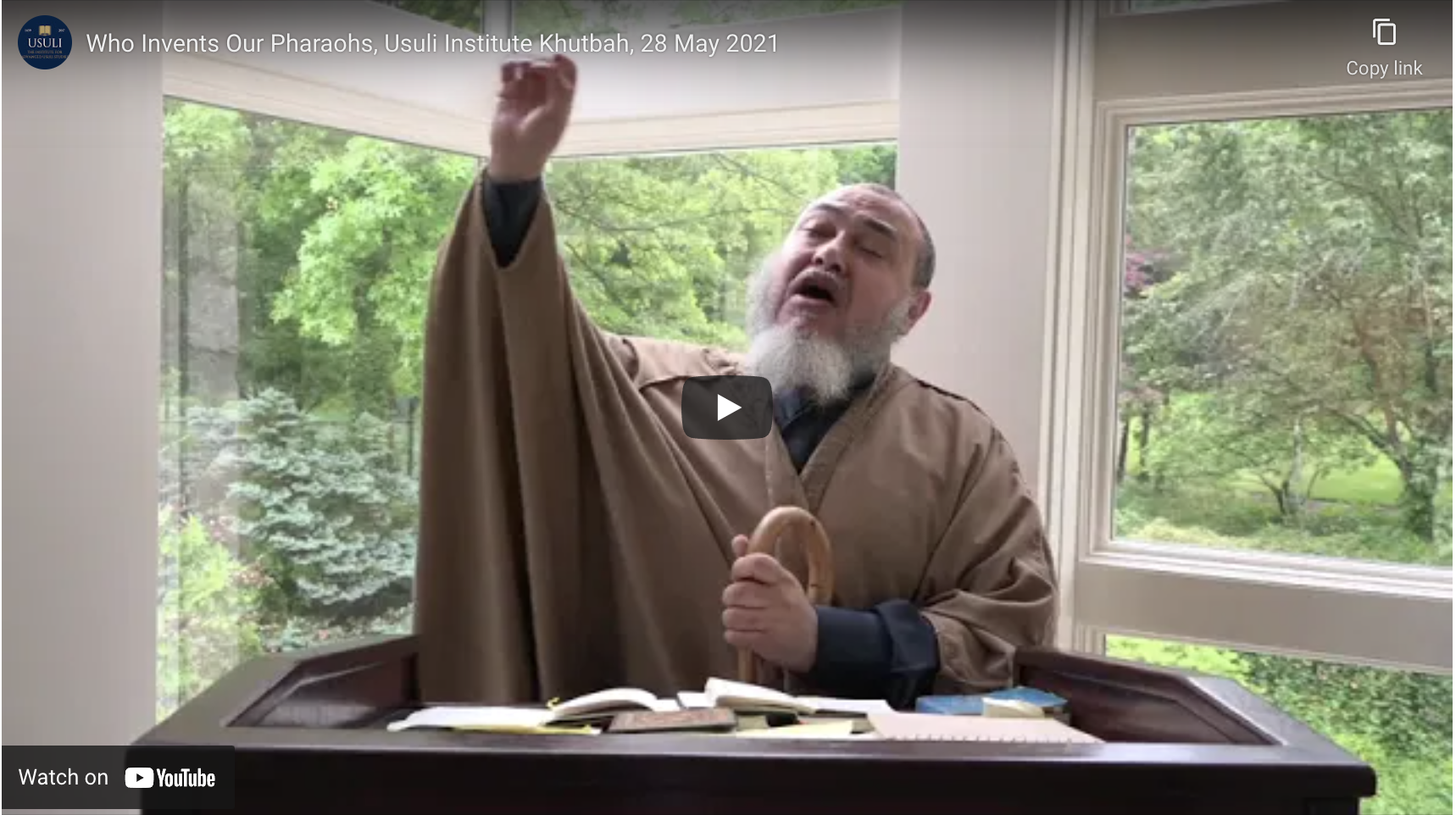Friday Khutbahs (Sermons) · 20. August 2021
We begin in the name of God, always acknowledging that God is the Ultimate, the One and Only; and that Muhammad was the final Prophet, sent as a mercy and a liberation unto humankind. Everything that takes human beings to the direction of the merciful; to the direction of the compassionate; a step further towards enlightenment; towards liberation and self-determination, IS Islam and IS the Islamic project. Islam did not come to teach human beings a set of rituals among the many ritualistic...
Friday Khutbahs (Sermons) · 11. June 2021
The challenge for Muslims, as is perhaps for all human beings on the face of this earth, is to live a life anchored in divine values, in the values that God has taught human beings; our core to the moral existence. It is elementary but necessary to say that there is an existence. It is a biological fact that all beings are given consciousness, and because they are given consciousness, they exist and they live. Part of this consciousness is our nervous system, which responds to stimulus and...
Friday Khutbahs (Sermons) · 04. June 2021
I would like to return to a basic and, in many ways, rather simple paradigm and idea. This is the idea of the ‘Qur’anic impulse’. I will borrow from the philosophy of the Islamic thinker Malik Bennabi and the ways in which he summarized the basic components of social interaction and existence. Bennabi wrote of three basic facets to human existence. The first is the ‘material’. This refers to the tools, artifacts, and elements of consumption, such as food, water, and minerals, that are...
Friday Khutbahs (Sermons) · 28. May 2021
The Qur’an mentions specific historical events that involved the prophets of God - between the prophets and the people they are sent to. The Qur’an, time and time again, goes back to these same narratives: The people of Pharoah, the people of Hud, the people of Thamud, and so on. Time and time again, God mentions the same people, although the structure of the narrative is very basic: an invitation, a truth denied, and consequences to the truth denied. Why does God keep referring to the same...
Friday Khutbahs (Sermons) · 06. March 2020
SUMMARY DESCRIPTION: Dr. Abou El Fadl begins with the reminder that because humans are often oblivious and forgetful, we take much for granted. The Prophet Muhammad was a moral example of how we should live our lives, and those who fail to understand this guidance lose so much because they cannot truly be guided to the path of Islam. Last week, Dr. Abou El Fadl shared the news that he had become functionally deaf and reflected upon his thoughts as he coped with this life change. Like most...
Friday Khutbahs (Sermons) · 11. October 2019
Dr. Abou El Fadl reminds that Allah has given us the Shari’ah, a path, a guidance, like a map. So, follow it and do not follow the whims of those who do not know. If you enter into a relationship with the Divine, you will feel the Divine and the Divine will guide you. The unjust are supported by the unjust. The nature of injustice is like an infection. It starts small but grows and extends, and when supported, results in further injustice. It is not just a theological principle; it is a...
Friday Khutbahs (Sermons) · 04. October 2019
Dr. Abou El Fadl reminds us that Allah in the Qur’an gave us Shariah, a path that we are instructed to follow. There are many people who think that Shariah is something as simple as a group of positivistic laws. However, laws that lead to practices are only half the process, because any practice decreed by law must have a purpose. If one is not following these laws with an understanding of why, how it fits in within the Shariah of Allah, then there is a fundamental breakdown. If it was simply...
Friday Khutbahs (Sermons) · 09. August 2019
In the khutbah before Eid al Adha, Dr. Abou El Fadl reminds us of the beautiful history, theology, philosophy and symbolism of the Islamic pillar of faith known as Hajj, the pilgrimage, to be made at least once in a lifetime by every Muslim on the planet if they are financially and physically able to do so. He reminds us of what the meeting of Muslims from around the world used to mean, long before the age of information and connectedness that we now understand in our current times. Hajj was at...








